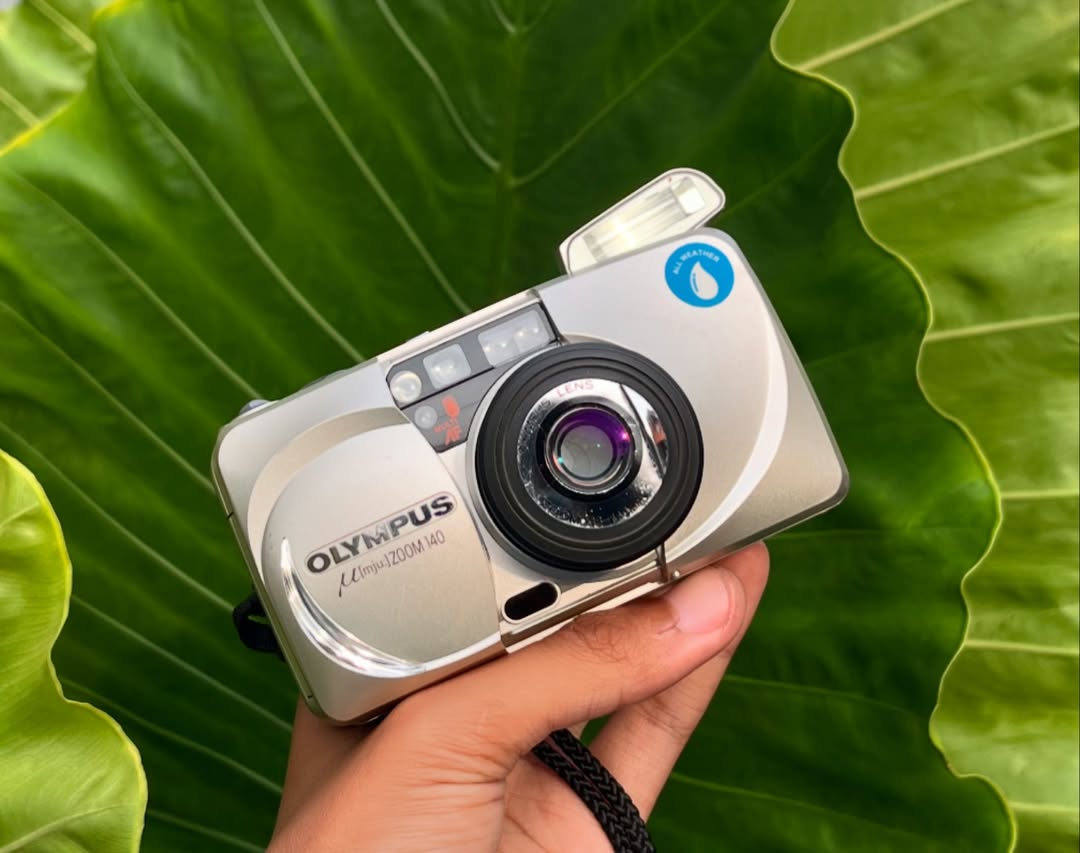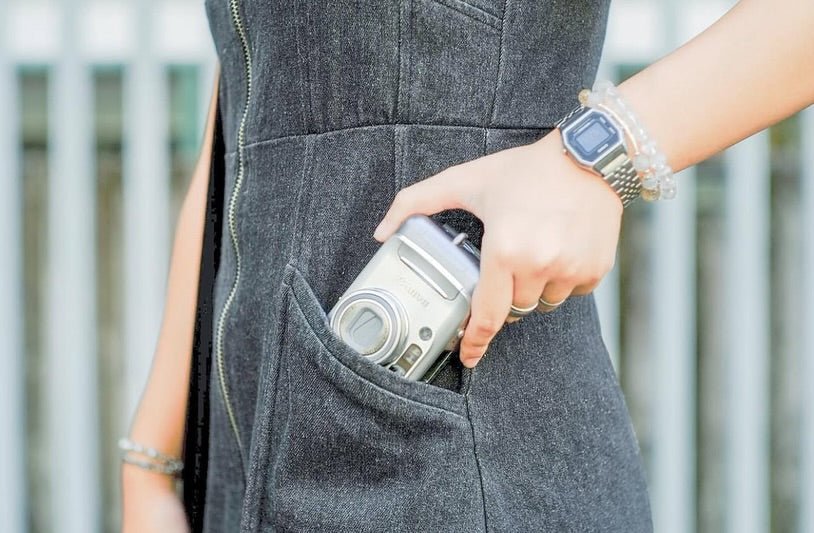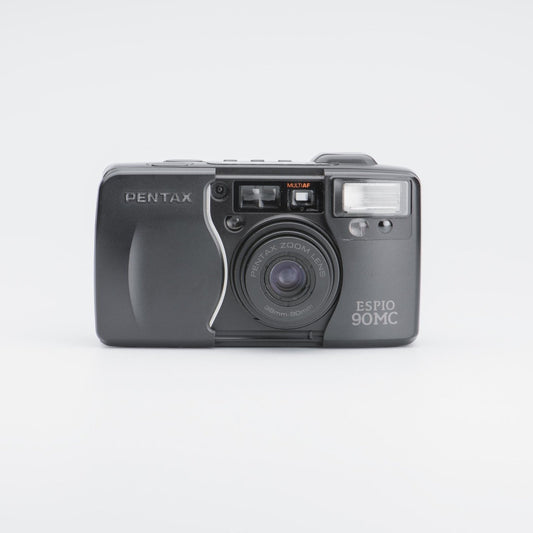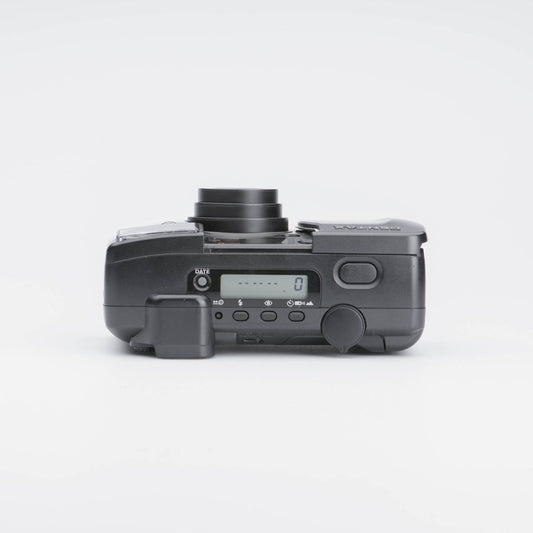

Buy Film Cameras in Australia – 35mm & Point-and-Shoot for Beginners & Collectors
Explore our range of Olympus, Pentax, Kodak and more film cameras for sale in Australia. Every camera is inspected and test-fired, backed by a 30-day warranty, with fast AU shipping and free Sydney pick-up.
- 🚚 Fast AU delivery
- 🕑 Same-day dispatch before 2pm AEST
- 🛡️ 30-day warranty
-
Pentax Espio 90MC 35mm Film Camera - Black
Vendor:Pentax5.0 / 5.0
(1) 1 total reviews
Regular price From $275.99Regular priceUnit price / per$345.00Sale price From $275.99Sale
Why Choose a Film Camera?
Film photography delivers a timeless look with natural grain, warm tones, and a tactile shooting experience that digital simply can’t replicate. Many photographers find that using a 35mm film camera helps improve their composition and creativity, since each shot counts. Whether you are a beginner or a collector, film cameras offer a unique way to capture moments.
Beginner-Friendly Picks and Collector Favourites
Our collection features trusted models from Olympus, Pentax, Nikon, and Kodak. Beginners often prefer compact point-and-shoot film cameras for their ease of use, while enthusiasts enjoy exploring feature-rich zoom cameras and vintage classics. Every camera we sell is carefully inspected and test-fired to ensure quality and reliability.
Helpful Buying Guides
Looking to compare models or learn more? Check out our detailed reviews and guides:
- Kodak M38 review & buying advice
- Kodak S-88 review & sample photos
- Best budget film camera for beginners
- Pentax film cameras – best models
Shipping, Warranty and Local Support
Enjoy same-day dispatch before 2pm AEST, free Sydney pick-up, and a straightforward 30-day warranty on all cameras. Our local team is here to help you choose the right gear, whether it’s your very first film camera in Australia or a vintage 35mm camera for your collection.
FAQs
What film camera is best for beginners?
Compact point-and-shoot models are ideal for newcomers thanks to their auto exposure and easy handling.
How to load a film camera?
Loading a film camera involves several steps. First, check if there's any film in your camera by turning the rewind knob. Next, get the film ready and let it rest to match the room temperature. Load the film and ensure it sits on the advancing gears properly. Then, close the back door and lock it with the base plate if you have one. Wind the camera to let the shutter cocked, take a shot with your lens cap covered to keep the first half frame unexposed. Make sure the rewind knob has tightened and check the film counter. Finally, double-check if the ISO speed has changed to match the film you are using.
Should I choose 35mm or another format?
35mm film cameras are the most accessible and affordable, with the widest range of film stocks and processing labs in Australia.
How to develop film from a camera?
Developing film at home involves several steps and requires specific equipment such as a black and white developer, fixer, a changing bag, a developing tank and reels, a digital thermometer, a timer, and a bottle opener. The process includes soaking the film, developing it, and then drying it. It's recommended to start with black and white film as it's less complicated for beginners. The total process time it takes to develop your film should be around 5 minutes. You'll want to agitate your film gently during the first 30 seconds of the development to ensure that the film is soaked thoroughly into the chemicals.
If you don't want to develop your own film then we recommend getting it developed by a professional lab. Our friends over at Rewind Photo Lab provides C-41, Black and White and E-6 film developing and scanning.
What type of film camera is best for travel?
The best film camera for travel is one that is compact, reliable, and easy to use. Olympus MJU is a quality film camera that many photographers and collectors are proud of. Its compact size is one of the main advantages of this camera. You can easily carry it around and catch the brightest moments while walking around
Will a film camera work without a battery?
Some film cameras, like the Pentax K1000, are entirely mechanical and do not require batteries to operate. However, many film cameras do require a battery to power the light meter, which is essential for getting correct exposures. It's always best to check the specific requirements of your camera model
Can a film camera go through X-ray?
Yes, a film camera can go through an X-ray machine. However, the film inside the camera can be affected by the X-ray, especially if it's a high-speed film or if it's subjected to multiple scans. It's generally recommended to request a hand inspection of your film at airport security to avoid potential damage.
Why shoot a film camera over digital?
Shooting with a film camera can offer a different experience and aesthetic compared to digital photography. Film images often have a unique, organic quality that many photographers appreciate. Additionally, shooting with film can help improve your photography skills, as it encourages careful composition and exposure settings due to the limited number of frames. It's also worth noting that film cameras can be more durable and require less power than digital cameras, making them a good choice for certain situations


